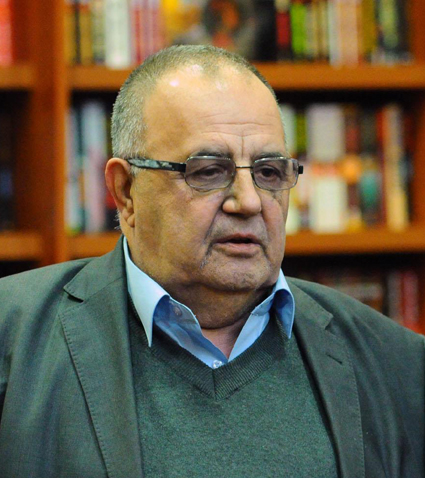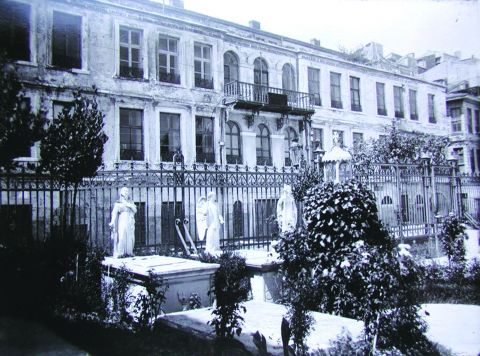One of the landmark buildings of the Bulgarian National Revival - the convent in Istanbul, will be turned into a museum. It is located on the Golden Horn, opposite to the famous Bulgarian St. Stephen Church - the only iron church in the Orthodox Christian world. The church and convent were built in the mid-19th century when there was a large Bulgarian community in Istanbul. Professor Bozhidar Dimitrov, director of the Bulgarian National Museum of History, says that besides being the capital of the Ottoman Empire, Istanbul was a huge center of consumption. It used to "swallow" all types of goods that the Bulgarian lands produced. Furthermore, over time the city on the Bosporus turned into an industrial center. For example, even though conditions were somewhat primitive, people used to tan hides and produce clothes for the army there.
 "It is believed that the Bulgarian community grew to some 60 thousand people and many of them were wealthy people who owned companies that received these government contracts. After the Crimean War they started the so-called Church Liberation struggle. This was not an ordinary church struggle in which Bulgarians aimed to have their own Exarchate and Patriarch and live independent church life, moving away from the Ecumenical Patriarchate, they were stuck with after 1393 when Tarnovo fell under Turkish rule. Our compatriots wanted to outline in practice the borders of their ethnic lands through drawing ecclesiastical boundaries. In case of favourable political environment they aimed to turn these outlines into political borders of Bulgaria."
"It is believed that the Bulgarian community grew to some 60 thousand people and many of them were wealthy people who owned companies that received these government contracts. After the Crimean War they started the so-called Church Liberation struggle. This was not an ordinary church struggle in which Bulgarians aimed to have their own Exarchate and Patriarch and live independent church life, moving away from the Ecumenical Patriarchate, they were stuck with after 1393 when Tarnovo fell under Turkish rule. Our compatriots wanted to outline in practice the borders of their ethnic lands through drawing ecclesiastical boundaries. In case of favourable political environment they aimed to turn these outlines into political borders of Bulgaria."
The convent was a center that attracted Bulgarians with different professions. It served as a shelter, seminary and a meeting place for Bulgarian immigrants, hungry for news from home. Over 20 newspapers and magazines used to be written here. It was in the building of the convent where the first Bulgarian school in the capital of the Ottoman Empire opened doors.

"For many years the building was abandoned, but recently with funds from the Bulgarian government, allocated in the period when I used to be a minister, we managed to restore it within a period of five years. Our task is to turn it into a museum. This is the final stage and I will be most happy when it is completed, as I am a descendant of Thracian immigrants and my family is from a village near Istanbul. The project for me is like a family duty. We have enough documents, photographs, crosses and chalices from churches and whatnot to put on display. I think we would be able to open this mid-sized museum on the Golden Horn on May 24 - the Day of Bulgarian Education, Culture and Slavonic Literature.”
The museum will host an exhibition dedicated to the Bulgarian community in Istanbul, as well as to the history of the Bulgarian Exarchate.
English: Alexander Markov
The exhibition "Codes of Identity", which opens today in Sofia, presents ancient Bulgarian lineages that have left a lasting legacy. The venue is the National Archaeological Institute with Museum at the Bulgarian Academy of Sciences (NAIM-BAS) In..
June 11, 2007 - US President George W. Bush Jr. visits Sofia. According to protocol, the press conference he held for the media took place among the exhibits of the National Archaeological Museum. The official lunch for the guest was later held at the..
On November 10, 1989, a plenum of the Central Committee of the Bulgarian Communist Party ousted its General Secretary and Chairman of the State Council, Todor Zhivkov. This marked the symbolic beginning of the transition from a one-party system to..

+359 2 9336 661
